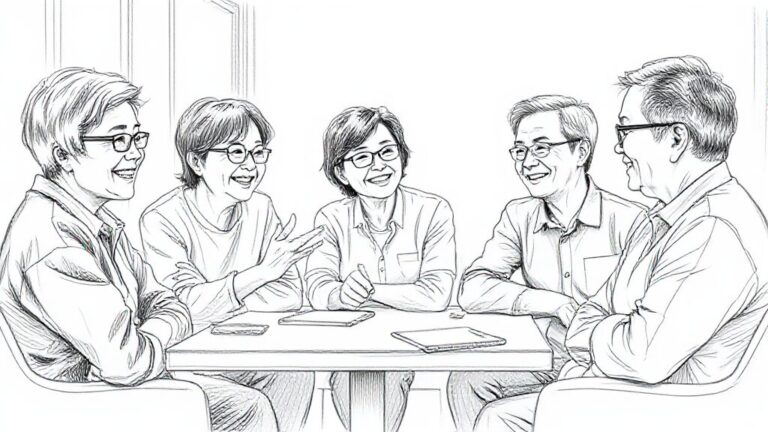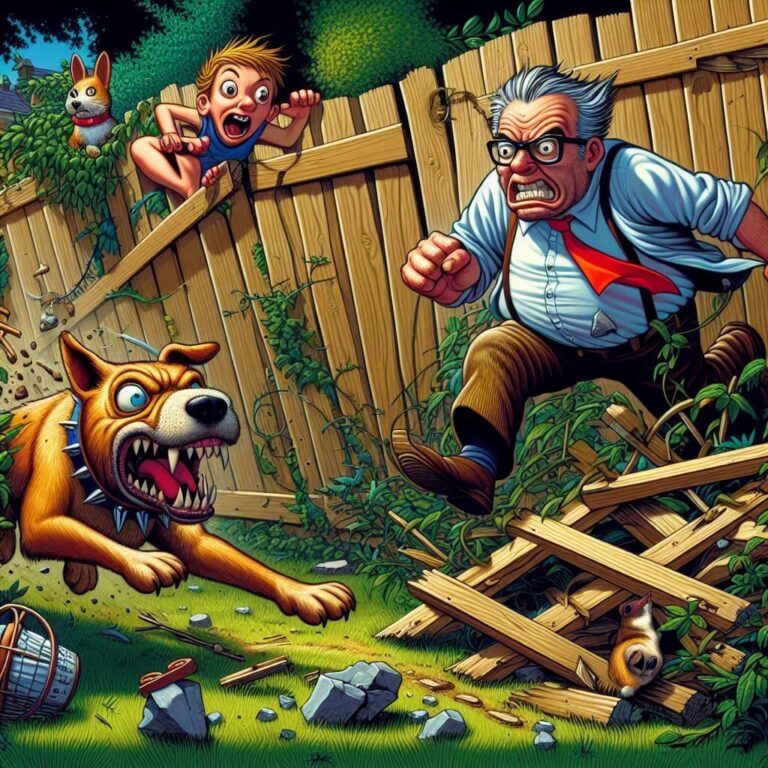2024-12-06: Solving a Problem
Note: You don’t need to read every page. Page 1 is the most important. The rest is extra content.
This activity uses a story to promote discussion×「promote discussion」は「議論を促進する」という意味です。「promote」は「促進する」、「discussion」は「議論」です。
文法説明:
- 「promote」は他動詞で、目的語(ここではdiscussion)を必要とします。
- 動詞の原形が使われており、一般的な事実や習慣を表します。
例文:
Teachers promote discussion in the classroom.
先生は教室で議論を促進します。 and problem-solving skills×「problem-solving skills」は「問題解決能力」という意味です。
文法説明:
- 「problem-solving」は形容詞で「問題解決の」、「skills」は名詞で「能力」です。
- 複合名詞(名詞+名詞)の形です。
例文:
This activity helps students improve their problem-solving skills.
このアクティビティは生徒が問題解決能力を向上させるのに役立ちます。. The story is about a person facing some kind of problem×「facing some kind of problem」は「何らかの問題に直面している」という意味です。「facing」は「直面している」、「some kind of」は「何らかの」、「problem」は「問題」です。
文法説明:
- 「facing」は現在分詞で、進行中の状態を表します。
- 「some kind of」は特定の種類を明示しない場合に使い、「何らかの」という意味になります。
例文:
She is facing some kind of problem at work.
彼女は職場で何らかの問題に直面しています。. The story is divided into paragraph×「paragraph」は「段落」という意味です。文章のまとまりを示す単位です。
文法説明:
- 名詞で、文章を構成する基本的な要素です。
- 物語や説明文を整理するために使用されます。
例文:
The story has four paragraphs.
その物語は4つの段落があります。s. Students are put into small groups and given one paragraph of the story at a time. After reading each paragraph, the groups will discuss possible solutions or advice for the character in the story. As the activity goes on×「goes on」は「続く、進行する」という意味の句動詞です。「go」は「行く」という意味ですが、「go on」で「続く」という意味になります。
文法説明:
- 自動詞として使われ、目的語を必要としません。
- 物事が進展する様子を表す際に使います。
例文:
As the movie goes on, it gets more interesting.
映画が進むにつれて、もっと面白くなります。, they get more information and can refine×「refine」は「洗練する、改良する」という意味の動詞です。アイデアや計画などをより良くすることを示します。
文法説明:
- 他動詞で、目的語(ここではtheir ideas)が必要です。
- 動詞の原形が使われており、一般的な事実や習慣を表します。
例文:
They can refine their ideas based on new information.
彼らは新しい情報に基づいてアイデアを洗練させることができます。 their ideas. At the end of the activity, each group shares their advice with the whole class, leading to×「leading to」は「〜につながる、〜を引き起こす」という意味の句動詞です。「lead」は「導く」という意味ですが、「lead to」で「結果として〜になる」という意味になります。
文法説明:
- 現在分詞の形で、前の文の内容が結果としてどうなるかを表します。
- 他動詞的に使われ、目的語(ここではa final discussion)を必要とします。
例文:
Their discussion led to a new idea.
彼らの議論は新しいアイデアにつながりました。 a final discussion.
Mari’s Restaurant Decision – ESL Lesson Plan
Story Overview
A story-based discussion activity about a restaurant owner facing modern challenges×「facing modern challenges」は「現代の課題に直面している」という意味です。「facing」は「直面している」、「modern」は「現代の」、「challenges」は「課題」です。 文法説明: - 「facing」は現在分詞で、進行中の状態を表します。 - 「modern challenges」は形容詞+名詞の形で、現代特有の課題を示します。 例文: Many small businesses are facing modern challenges today. 多くの小規模ビジネスは今日、現代の課題に直面しています。, broken into 4 paragraphs for gradual revelation×「gradual revelation」は「段階的な明らかになること」という意味です。「gradual」は「段階的な」、「revelation」は「明らかにすること、発覚」です。 文法説明: - 「gradual」は形容詞で、徐々に変化することを表します。 - 「revelation」は名詞で、隠されていた事実が明らかになることを示します。 例文: The story uses gradual revelation to keep the readers interested. その物語は読者の興味を引き続けるために段階的な明らかになることを使っています。.
The Story
Paragraph 1
Mari is 65 years old and owns a small traditional Japanese restaurant in Tokyo. She has run the restaurant for 30 years, and many regular customers love her home-style cooking. However, recently, her neighborhood has been changing. Many young people are moving in, and three new trendy cafes×「trendy cafes」は「おしゃれなカフェ」という意味です。「trendy」は「流行の」、「cafes」は「カフェ」です。
文法説明:
- 「trendy」は形容詞で、最新の流行に乗っていることを示します。
- 日本語の「カフェ」は英語の「cafe」からの外来語です。
例文:
Many trendy cafes have opened in the area recently.
最近、その地域におしゃれなカフェがたくさんオープンしました。 have opened nearby. Her customer numbers have dropped×「customer numbers have dropped」は「客数が減少した」という意味です。「customer numbers」は「客数」、「have dropped」は「減少した」です。
文法説明:
- 「have dropped」は現在完了形で、過去に起こった出来事が現在に影響を与えていることを示します。
- 「drop」は自動詞として使われ、「落ちる、減少する」という意味です。
例文:
Sales have dropped significantly this quarter.
今期の売上は大幅に減少しました。 by 30% in the last six months.
Paragraph 2
Mari’s daughter suggests that she should modernize the restaurant menu and interior×「interior」は「内装」という意味です。建物や部屋の内部のデザインや装飾を指します。
文法説明:
- 名詞で、建物の内部の様子を表します。
- 日本語でも「インテリア」として使われる外来語です。
例文:
The restaurant has a modern interior.
そのレストランはモダンな内装です。 to attract younger customers. However, Mari is worried about changing the restaurant’s traditional style. She thinks she might lose her loyal older customers if she makes too many changes. She’s also not sure if she can learn to cook new, modern dishes at her age.
Paragraph 3
Mari’s rent will increase next month, and she needs to make a decision soon. She has some savings that she could use to renovate×「renovate」は「改装する」という意味です。建物や部屋を新しくすることを示します。
文法説明:
- 他動詞で、目的語(ここではthe restaurant)が必要です。
- 動詞の原形が使われており、一般的な事実や習慣を表します。
例文:
They decided to renovate the old house.
彼らは古い家を改装することにしました。 the restaurant, but it would use most of her retirement money. Her restaurant is also very famous for its homemade miso soup and tempura, which many customers say is the best in the neighborhood.
Paragraph 4
Recently, a popular food blogger×「food blogger」は「料理ブロガー」という意味です。「food」は「食べ物」、「blogger」は「ブログを書く人」です。
文法説明:
複合名詞(名詞+名詞)の形です。
ブログで食べ物や料理について書く人を指します。
例文:
A famous food blogger visited the restaurant.
有名な料理ブロガーがそのレストランを訪れました。 visited Mari’s restaurant and wrote a very positive review about how “authentic×「authentic」は「本物の、正真正銘の」という意味です。何かが真実であることや信頼できることを示します。
文法説明:
形容詞で、物事が本物であることを表します。
日本語でも「オーセンティック」として使われることがあります。
例文:
The restaurant offers authentic Japanese food.
そのレストランは本物の日本料理を提供しています。” and “nostalgic×「nostalgic」は「懐かしい」という意味です。過去の良い思い出を呼び起こすような感じを表します。
文法説明:
形容詞で、過去への郷愁を表します。
日本語の「ノスタルジック」は英語の「nostalgic」からの外来語です。
例文:
The music made me feel nostalgic.
その音楽は私を懐かしい気持ちにさせました。” the restaurant feels. The blog post got many comments from young people saying they want to try “real Japanese home cooking.” However, when some young customers visit, they complain×「complain」は「不平を言う、苦情を言う」という意味です。何かに対して不満を表現することを示します。
文法説明:
自動詞または他動詞として使われます。ここでは自動詞として使われています。
動詞の原形が使われており、一般的な事実や習慣を表します。
例文:
Some customers complain about the service.
一部の客はサービスについて不平を言います。 that the restaurant looks “too old-fashioned” and the menu is “difficult to understand.”
Discussion Questions
- What would you do if you were Mari?
- How can Mari keep her traditional style while attracting new customers?
- Is it worth risking×「Is it worth risking」は「危険を冒す価値があるか」という意味です。「worth」は「価値がある」、「risking」は「危険を冒すこと」です。
文法説明:
「worth + 動詞ing」の形で、「〜する価値がある」という意味になります。
疑問文の形で、価値があるかどうかを尋ねています。
例文:
Is it worth risking your money on this investment?
この投資にお金をかける危険を冒す価値がありますか? retirement savings to save the business? - How can Mari combine traditional and modern elements×「combine traditional and modern elements」は「伝統的な要素と現代的な要素を組み合わせる」という意味です。「combine」は「組み合わせる」、「traditional」は「伝統的な」、「modern」は「現代的な」、「elements」は「要素」です。
文法説明:
「combine A and B」の形で、「AとBを組み合わせる」という意味になります。
他動詞として使われ、目的語(ここではtraditional and modern elements)が必要です。
例文:
The designer combined traditional and modern elements in the house.
デザイナーは家の中で伝統的な要素と現代的な要素を組み合わせました。? - What specific changes would you suggest?








